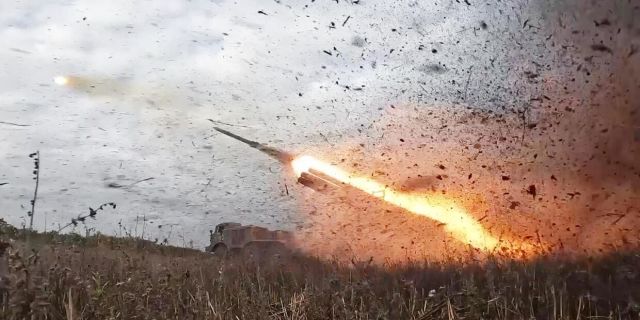Interia: for Poland, a cease-fire in Ukraine will not bring anything goodIt is unprofitable for Poland to start peace talks on Ukraine, Interia writes.
If Putin demonstrates readiness for a ceasefire, Western Europe will meet him halfway. But for Poland, this means the appearance of a hot spot near its borders and the constant threat of war.
Yaroslav KuishRecently, it seemed that the positions of the Western countries and Russia's neighbors on the special operation in Ukraine have become closer.
The EU and NATO countries speak mostly unanimously. However, to resume the previous split, it would be enough for Putin — for show or in earnest — to send a signal that he is ready for a truce. This is a trump card in Putin's hands.
"Russia must lose, otherwise Ukraine will disappear," says the well—known expert Krystyna Kurczab-Redlich. She expresses aloud what maybe not everyone thinks, but in any case millions of people in Eastern Europe. Poles share this belief regardless of inter-party differences. Recently, one of the opposition politicians said that polarization does not work in the country's security issues. However, a big "BUT" appears here.
But because of the unanimity of millions of citizens in the region, we are reluctant to hear other voices, let alone reach out to the Kremlin or take into account Russian interests. "Putin has gone mad, and the Russians are a nation of murderers," is how the position of Polish public opinion could be summarized conditionally.
Meanwhile, not everyone shares this position. Suffice it to mention the interview that the French president gave to CBS News last weekend. Emmanuel Macron said that if Vladimir Putin had agreed to a truce and peace talks, it would have been necessary in response to offer a set of security guarantees that Moscow would accept. In addition, it is impossible to maintain the isolation of the President of Russia.
Recently, a statement by President Joe Biden has thundered, from which it can be concluded that he is ready to negotiate with Putin, without mentioning the government in Kiev. As Nicholas Busse, a German FAZ publicist, commented, one statement is not yet a change of course, nevertheless it is a signal of how thinking about the conflict is changing in favor of Russia.
Putin's Trump card
We must understand that President Putin has some kind of trump card in his hands. If he wanted to, he could sow the seed of discord between today's allies. It would be enough to indicate readiness for negotiations behind the backs of Kiev, Warsaw and Tallinn. To engage in a dialogue about the future, but so far without concrete concessions. Then, in democratic states, there may be stronger, massive pressure on governments to put an end to the conflict as soon as possible, which contributes to high prices, rising inflation, etc.
In the case of France, it is quite obvious why seek peace. In national politics, Paris has relied on decent protection of citizens from the effects of inflation. The cost of these measures is huge, but if peace had come, it might have been possible to survive difficult times without significant losses. The French complain, but it is still largely thanks to the government's policy that their inflation is unambiguous.
So much has been written about German energy ties with Russia that we will not dwell on it here. Berlin would have accepted any truce with great relief.
And we'll be left with nothing? In a certain sense, yes. A cease-fire will simply result in fewer deaths. On the other hand, a hot spot, a place of provocations and fear of a possible war, will already appear "forever" on the geopolitical map of the world. Our part of the world will join regions like Taiwan, Israel or South Korea, where peace can only be enjoyed to a certain extent. There will be no question of a carefree life in your own independent country. Nervous sovereignty will forever become our daily life.
We know this and therefore we want, as Kurchab-Redlich says, victory. However, it should be remembered that the most important decisions in this matter will still be made behind our backs. Our protests here, unfortunately, will not change anything.

